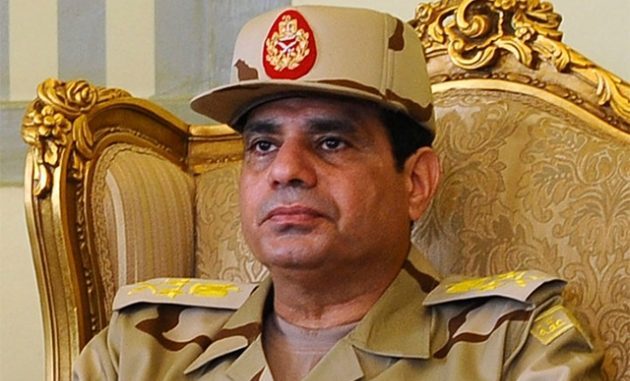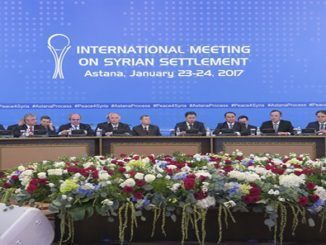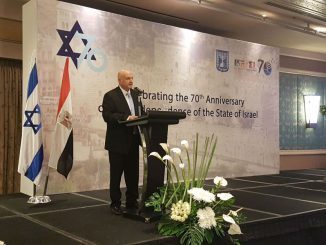
Despite al-Sisi’s effort to vanish any political competitor from his way in the upcoming elections, it seems that things will get tougher for him in the coming weeks 2018 presidential elections
In fact, 2018 presidential elections has brought a host of challenges for Abdel-Fattah al-Sisi. In a an article titled: “Why Sisi Seems Worried”, written by Michele Dunne and published at Carnegie Middle East Center, she mentioned that al-Sisi has been facing many challenges toward his way in the elections.”Al-Sisi’s first challenge is to be re-validated to begin a second four-year term amid growing external challenges and hints of internal ones as well.”
Dunne added,”And if he passes that test, economic, terrorism, and water problems promise to make his course forward far from smooth. The highly public current campaign against the terrorist insurgency in the Sinai and elsewhere appears to be an effort to change the narrative in Egypt (and perhaps abroad) from one about Sisi’s setbacks and failures to one about his brave efforts.”
Michele Dune, Director and Senior Fellow Middle East Program at Carnegie, wrote that the buildup “so far to the presidential election can only be described as a fiasco.” Sisi had to have been taken aback by the fact that in the space of a few weeks no fewer than five significant candidates announced their desire to run.
The most serious challengers were former prime minister Ahmed Shafik and former army chief of staff Sami Anan, not only because each was perceived as at least as qualified for the job as Sisi, but also because they were rumored to enjoy some support among Sisi’s own base in the military and intelligence services.
“However, other candidates also threatened Sisi in ways less electoral but nonetheless political.” she added.These include the truth-telling and well-qualified former parliamentarian Mohamed Anwar Sadat, a nephew of the later Egyptian president of the same name; the human rights lawyer Khaled Ali, with his strong support among the youth; and even the unknown but genuine young army colonel, Ahmed Konsowa.
Intimidation and detention eliminated Shafik and Anan, and prosecution the unfortunate Konsowa. Sadat and Ali withdrew when it became clear that even their modest objective of reviving political debate would be resisted vigorously.
They also might face prosecution because of their call to boycott what appears will be a blatantly unfair election.
“And so Sisi had to dragoon into service a particularly rusty tool of the regime, to stand as a candidate against him and give the electoral process a facade of legitimacy,” she said.
He is Moussa Mustapha Moussa, and the regime brought him in so as to avoid a single-candidate election, as by law this would require Sisi to win the support of 5 percent of the electorate, or some 3 million votes. Moussa is the very same person used by the Mubarak to initiate a split in the Ghad (Tomorrow)Party founded by Ayman Nour, a feisty young parliamentarian who ran against then-president Hosni Mubarak in the country’s first competitive presidential election in 2005.
Moussa is far from being a credible challenger to Sisi. He has virtually no political base and—most embarrassing— enthusiastically endorsed al- Sisi’s reelection before his eleventh hour call to serve as opponent in the race.
However, according to Michele Dunne, al-Sisi’s main problem now is “how to produce a credible show of public support on election day—queues at the ballot box for photojournalists and a turnout equaling, or not much less than, the 2014 turnout of 47 percent, translating into some 26 million votes.”
“Four years ago this was only achieved through extraordinary efforts, despite the fact that Sisi reportedly was much more popular then than he is now. A significant fall in votes for Sisi would expose his diminishing public support,” said Michelle Dunne.
His concern was evident in the stunning referral to prosecution of opposition politicians calling for an election boycott, on the accusation of ” trying to overthrow the regime.”
In recent history, ” voters will be persuaded to turn out through a mix of incentives, such as payments in food, and disincentives, such as threats to impose a EGP500 fine, on those failing to vote. Possibly the turnout will be falsified, as there will be no rigorous domestic monitoring,”according to Dunne.
In addition, another problem lies in mobilizing votes. Al-Sisi’s decision not to build a political party to replace the dissolved National Democratic Party of the pre-2011 period, “apparently due to his contempt for civilian politics, makes mobilizing voters onerous and awkward at best.”
While the election itself is now promising to be a farce, what has happened in the last few weeks suggests that opposition to Sisi might be growing.
“Merely the fact that five challengers—with varying credentials and public support to be sure, but all serious and genuine in their opposition—arose so quickly, even in Egypt’s repressive political atmosphere, shows that many are dissatisfied with his rule,”she said.
Al-Sisi’s angry, nervous public comments cautioning against political challenges, made to a group of supporters including senior military officers, only fed the impression that he feels pressured from both inside and outside the regime.
In the end, even if al-Sisi makes it through the election escapade and begins a new term in early April, plenty of difficulties await. Al-Sisi has failed to deliver the economic prosperity and security he promised, and neither seems to be on the horizon. Austerity measures that are helping to keep the government afloat are for middle class and poor Egyptians, and so far there remains high unemployment and high inflation. The Nile water crisis with Ethiopia and Sudan is far from resolved, and has finally come into public view as a looming national security threat.
In addition to the external challenges facing al-Sisi, as his efforts to balance all his various foreign patrons and arms suppliers—Saudi Arabia, the United Arab Emirates, the United States, Russia, France, Germany, and North Korea—have become increasingly complicated.
Moreover, al-Sisi was unable to combat the terrorist insurgency and until now it is not yet clear whether the current campaign will succeed to the extent of preventing any more major attacks before the presidential election. “However, it is unlikely to end the insurgency altogether, as promised,”said Dunne.
Regarding having political change in Egypt in 2018? Dunne said that,” the odds are still against it, although not as heavily as in recent years. But what Abdel-Fattah al-Sisi has made clear is that if change comes, it will not be through the ballot box.”



